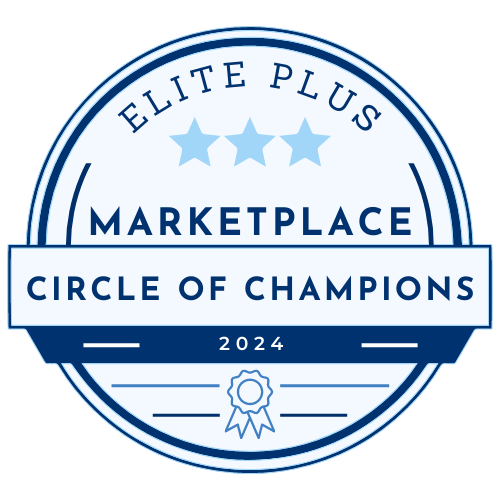Frequently Asked Questions
We’re here to give you the answers. Browse our list of topics, and if you can’t find what you need, give us a ring.
We know shopping for insurance can be a daunting experience, but we're here to help!
Don't buy more coverage or pay more than what you need.
Shopping for insurance can be stressful, but we can make it simple!
-
Do you charge for your services?
Most people are not aware that health insurance agents do not charge for their service(s).
Insurance agents are paid by the health insurance carriers in the form of a commission. The agent's commission is based on the type of policy they sell.
-
Why is health insurance important?
Health insurance is an important tool in managing our health care needs. It protects us from high, unexpected medical expenses and gives us access to a broad range of care providers. Health insurance also helps to keep us healthy by providing preventive services, such as screenings and vaccines, at little or no cost. In addition, health insurance can provide peace of mind in knowing that we are prepared for the unexpected. For these reasons and more, health insurance is an essential part of maintaining our health and wellbeing.
-
When is Open Enrollment?
The open enrollment period for health insurance coverage under the Affordable Care Act (ACA), also known as Obamacare, begins on November 1 and ends on January 15.
This period is when people who do not have health insurance can sign up for a plan through the health insurance marketplace. Those who are already enrolled in a plan can also use this time to shop around for a new plan or to make changes to their existing coverage.
The ACA requires most people to have health insurance, and the open enrollment period is the only time when people can sign up for coverage unless they experience a qualifying life event, such as losing job-based coverage or getting married. For those who do not have health insurance or who want to explore their options for coverage, the open enrollment period is an important time to do so.
-
What is Special Enrollment (SEP)?
Special Enrollment is a period of time when individuals and families can sign up for health insurance outside of the Open Enrollment period. This period is typically reserved for those who have recently experienced a qualifying life event, such as losing other health coverage, getting married, or having a baby.
Special Enrollment generally lasts for 60 days from the date of the qualifying event. However, state and federal rules can vary, so it's important to check with your insurance company or marketplace to see if you're eligible and to find out how long you have to enroll.
Individuals who miss the Open Enrollment deadline may still be able to qualify for a Special Enrollment period if they experience a qualifying life event. However, it's important to note that you won't be able to enroll in coverage until after the event has occurred.
For example, if you experience a job loss on February 15th, you won't be able to enroll in coverage until after that date. If you wait until March 1st to start shopping for coverage, your new policy wouldn't take effect until April 1st. So, if you need health insurance right away, it's important to act quickly and not wait until the last minute.
You can learn more about Special Enrollment periods and how they work by visiting healthcare.gov or contacting your insurance company or marketplace directly.
-
What is a health insurance premium?
A health insurance premium is the amount of money that a person or family pays to a health insurance company each month to maintain their coverage. The premium is typically paid in addition to any deductibles, copayments, or coinsurance that the policyholder may owe when they receive medical care. Premiums can vary widely based upon the type of coverage that is being purchased, as well as the age and health of the individuals covered.
In some cases, employers may cover a portion of their employees' premiums; in others, employees may be responsible for the entire amount themselves. For those who are self-employed or not working, there may be options for subsidies or premium assistance programs to help offset the cost of coverage. Ultimately, the amount of a health insurance premium is just one factor to consider when choosing a policy.
-
What is a deductible?
A health insurance deductible is the amount of money that you are required to pay out-of-pocket before your health insurance company will begin to pay for your medical expenses. The deductible is usually a set dollar amount, and it may be different for each type of service that you receive.
For example, you may have a $500 deductible for hospital services and a $100 deductible for doctor's office visits. In some cases, the deductible must be paid before you receive any coverage at all; in other cases, you may be able to get partial coverage even if you have not yet met your deductible.
In general, the higher your deductible is, the lower your monthly premium will be. Therefore, it is important to choose a deductible that you feel comfortable with in case you need to use your health insurance.
-
What is co-insurance?
Co-insurance is a type of cost-sharing between an insurer and an insured. Typically, the insurer will pay a fixed percentage of the covered costs while the insured pays the remaining costs.
For example, if an insurer has an 80/20 co-insurance with a $1000 deductible, the insurer would pay 80% of the covered costs after the deductible has been met, up to a maximum out-of-pocket limit. The insured would be responsible for paying the other 20% of the covered costs as well as the entire deductible. In this scenario, the insurer would pay $800 while the insured would pay $200.
-
What is an out-of-pocket maximum?
An out-of-pocket maximum is the most you would have to pay in a year for your share of covered expenses. It does not include your premium. It's important to know that your coverage may have more than one out-of-pocket maximum.
For example, you may have an overall out-of-pocket maximum for all deductibles, copayments, and coinsurance. You also may have a separate out-of-pocket maximum for prescription drugs. The out-of-pocket maximums may be different for in-network and out-of-network services.
Once you reach your out-of-pocket maximum, your health plan pays 100% of the covered allowed amounts for the rest of the plan year.
Example: Let's say you have an overall out-of-pocket maximum of $3,000 per year and a $250 deductible. During the year, you have $1,500 in doctor visit copayments, $800 in prescriptions, and $450 in other covered services such as x-rays and laboratory tests. Your total out-of-pocket costs would be $2,950 ($250 + $1,500 + $800 + $450), so you've met your overall out-of-pocket maximum for the year. In this case, your health plan would pay 100% of any further covered allowed charges for the rest of the plan year.
Be aware that some types of services are not counted towards meeting your out-of-pocket maximums. These include most preventive care services, some office visits, some vaccines, and sometimes dental and vision care for children.
-
What is the difference between an HMO and PPO?
When it comes to choosing a health insurance plan, there are a lot of options to consider. Two of the most common types of plans are HMOs and PPOs. Both have their own set of advantages and disadvantages, so it's important to understand the difference between the two before making a decision.
An HMO, or Health Maintenance Organization, is a type of plan that typically requires you to use in-network providers. This means that you'll likely have lower out-of-pocket costs.
A PPO, or Preferred Provider Organization, is another type of health insurance plan. With a PPO, you typically have more flexibility when it comes to choosing providers. You can still save money by using in-network providers, but you don't usually have to pay as much if you need to see an out-of-network provider. However, PPOs typically have higher premiums than HMOs.
When it comes to choosing between an HMO and a PPO, it's important to consider your individual needs and preferences. If you prefer more flexibility when it comes to choosing providers, then a PPO might be the better option for you. However, if you're looking for lower premiums and out-of-pocket costs, then an HMO could be the way to go.
-
Do you charge for your services?
Most people are not aware that health insurance agents do not charge for their service(s).
Insurance agents are paid by the health insurance carriers in the form of a commission. The agent's commission is based on the type of policy they sell.
-
Why is health insurance important?
Health insurance is an important tool in managing our health care needs. It protects us from high, unexpected medical expenses and gives us access to a broad range of care providers. Health insurance also helps to keep us healthy by providing preventive services, such as screenings and vaccines, at little or no cost. In addition, health insurance can provide peace of mind in knowing that we are prepared for the unexpected. For these reasons and more, health insurance is an essential part of maintaining our health and wellbeing.
-
When is Open Enrollment?
The open enrollment period for health insurance coverage under the Affordable Care Act (ACA), also known as Obamacare, begins on November 1 and ends on January 15.
This period is when people who do not have health insurance can sign up for a plan through the health insurance marketplace. Those who are already enrolled in a plan can also use this time to shop around for a new plan or to make changes to their existing coverage.
The ACA requires most people to have health insurance, and the open enrollment period is the only time when people can sign up for coverage unless they experience a qualifying life event, such as losing job-based coverage or getting married. For those who do not have health insurance or who want to explore their options for coverage, the open enrollment period is an important time to do so.
-
What is Special Enrollment (SEP)?
Special Enrollment is a period of time when individuals and families can sign up for health insurance outside of the Open Enrollment period. This period is typically reserved for those who have recently experienced a qualifying life event, such as losing other health coverage, getting married, or having a baby.
Special Enrollment generally lasts for 60 days from the date of the qualifying event. However, state and federal rules can vary, so it's important to check with your insurance company or marketplace to see if you're eligible and to find out how long you have to enroll.
Individuals who miss the Open Enrollment deadline may still be able to qualify for a Special Enrollment period if they experience a qualifying life event. However, it's important to note that you won't be able to enroll in coverage until after the event has occurred.
For example, if you experience a job loss on February 15th, you won't be able to enroll in coverage until after that date. If you wait until March 1st to start shopping for coverage, your new policy wouldn't take effect until April 1st. So, if you need health insurance right away, it's important to act quickly and not wait until the last minute.
You can learn more about Special Enrollment periods and how they work by visiting healthcare.gov or contacting your insurance company or marketplace directly.
-
What is a health insurance premium?
A health insurance premium is the amount of money that a person or family pays to a health insurance company each month to maintain their coverage. The premium is typically paid in addition to any deductibles, copayments, or coinsurance that the policyholder may owe when they receive medical care. Premiums can vary widely based upon the type of coverage that is being purchased, as well as the age and health of the individuals covered.
In some cases, employers may cover a portion of their employees' premiums; in others, employees may be responsible for the entire amount themselves. For those who are self-employed or not working, there may be options for subsidies or premium assistance programs to help offset the cost of coverage. Ultimately, the amount of a health insurance premium is just one factor to consider when choosing a policy.
-
What is a deductible?
A health insurance deductible is the amount of money that you are required to pay out-of-pocket before your health insurance company will begin to pay for your medical expenses. The deductible is usually a set dollar amount, and it may be different for each type of service that you receive.
For example, you may have a $500 deductible for hospital services and a $100 deductible for doctor's office visits. In some cases, the deductible must be paid before you receive any coverage at all; in other cases, you may be able to get partial coverage even if you have not yet met your deductible.
In general, the higher your deductible is, the lower your monthly premium will be. Therefore, it is important to choose a deductible that you feel comfortable with in case you need to use your health insurance.
-
What is co-insurance?
Co-insurance is a type of cost-sharing between an insurer and an insured. Typically, the insurer will pay a fixed percentage of the covered costs while the insured pays the remaining costs.
For example, if an insurer has an 80/20 co-insurance with a $1000 deductible, the insurer would pay 80% of the covered costs after the deductible has been met, up to a maximum out-of-pocket limit. The insured would be responsible for paying the other 20% of the covered costs as well as the entire deductible. In this scenario, the insurer would pay $800 while the insured would pay $200.
-
What is an out-of-pocket maximum?
An out-of-pocket maximum is the most you would have to pay in a year for your share of covered expenses. It does not include your premium. It's important to know that your coverage may have more than one out-of-pocket maximum.
For example, you may have an overall out-of-pocket maximum for all deductibles, copayments, and coinsurance. You also may have a separate out-of-pocket maximum for prescription drugs. The out-of-pocket maximums may be different for in-network and out-of-network services.
Once you reach your out-of-pocket maximum, your health plan pays 100% of the covered allowed amounts for the rest of the plan year.
Example: Let's say you have an overall out-of-pocket maximum of $3,000 per year and a $250 deductible. During the year, you have $1,500 in doctor visit copayments, $800 in prescriptions, and $450 in other covered services such as x-rays and laboratory tests. Your total out-of-pocket costs would be $2,950 ($250 + $1,500 + $800 + $450), so you've met your overall out-of-pocket maximum for the year. In this case, your health plan would pay 100% of any further covered allowed charges for the rest of the plan year.
Be aware that some types of services are not counted towards meeting your out-of-pocket maximums. These include most preventive care services, some office visits, some vaccines, and sometimes dental and vision care for children.
-
What is the difference between an HMO and PPO?
When it comes to choosing a health insurance plan, there are a lot of options to consider. Two of the most common types of plans are HMOs and PPOs. Both have their own set of advantages and disadvantages, so it's important to understand the difference between the two before making a decision.
An HMO, or Health Maintenance Organization, is a type of plan that typically requires you to use in-network providers. This means that you'll likely have lower out-of-pocket costs.
A PPO, or Preferred Provider Organization, is another type of health insurance plan. With a PPO, you typically have more flexibility when it comes to choosing providers. You can still save money by using in-network providers, but you don't usually have to pay as much if you need to see an out-of-network provider. However, PPOs typically have higher premiums than HMOs.
When it comes to choosing between an HMO and a PPO, it's important to consider your individual needs and preferences. If you prefer more flexibility when it comes to choosing providers, then a PPO might be the better option for you. However, if you're looking for lower premiums and out-of-pocket costs, then an HMO could be the way to go.
Why Choose HealthMed Plans?
We know that trying to find the right health insurance can be confusing and frustrating. That's why we've created Healthmed Plans, to help take the guesswork out of finding the right plan for you.

Prompt & Reliable
We want to make sure that you have access to the best possible healthcare, and our team of experts is here to help you every step of the way.

Caring & Compassionate
Talk to a real person when you have questions and know that somebody is always there to help you out, no matter what.

Prompt & Reliable
We want to make sure that you have access to the best possible healthcare, and our team of experts is here to help you every step of the way.

Caring & Compassionate
Talk to a real person when you have questions and know that somebody is always there to help you out, no matter what.

Knowledgable
Get expert advice and support when you need it most. From find the coverage you need to billing questions, feel confident that you're in good hands.

Exceptional Customer Service
You shouldn't have to worry about whether or not you're getting the best possible coverage. With Healthmed Plans, you can be confident that you're getting the best possible care.

Knowledgable
Get expert advice and support when you need it most. From find the coverage you need to billing questions, feel confident that you're in good hands.

Exceptional Customer Service
You shouldn't have to worry about whether or not you're getting the best possible coverage. With Healthmed Plans, you can be confident that you're getting the best possible care.



